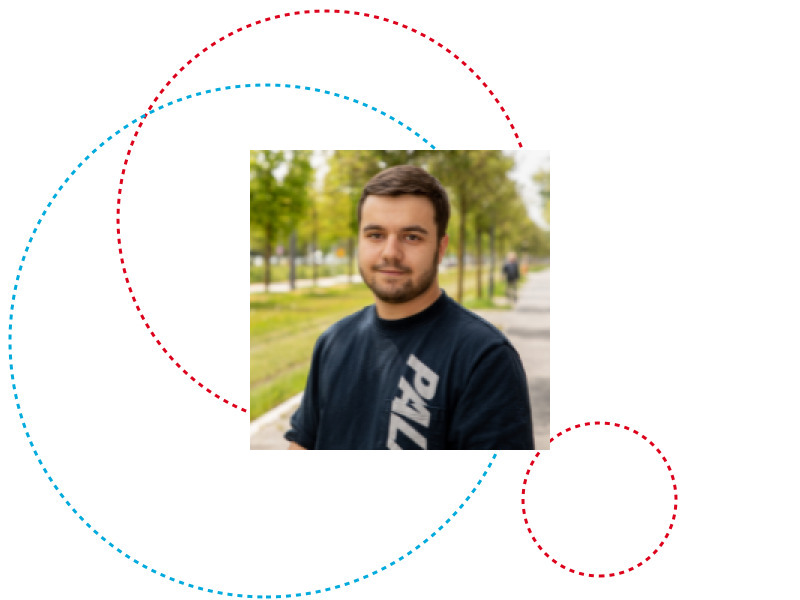Members of the defense committee:
- Prof. Dr. Jacques KLEIN, Université du Luxembourg, Chair
- Prof. Dr. Eric RONDEAU, Université de Lorraine, Vice-chair
- Dr. Jeremy ROBERT, Cebi Int., Member
- Prof. Dr. Abdelaziz BOURAS, Qatar University, Member
- Prof. Dr. Yves LE TRAON, Université du Luxembourg, Member (Supervisor)
Abstract:
In recent years, manufacturing companies have been transitioning towards the fourth industrial revolution (also referred to as Industry 4.0). One of the main objectives of this transition is for companies to increase their Overall Equipment Effectiveness (OEE), which is one of the most important production Key Performance Indicators (KPI). There are two main approaches to this transition, the first one is to start building facilities and infrastructures from scratch while directly having the Industry 4.0 features in mind (referred to as greenfield), the second one – and the one we are focusing on in this dissertation – is to retrofit the existing legacy machines and infrastructures, this is referred to as brownfield. The latter is also the preferred approach of Cebi Luxembourg S.A. – our industrial partner in a Research, Development and Innovation project – a company that has been existing for decades. In this context, this dissertation explores three aspects of the digital transformation, by investigating how innovative technologies/approaches can contribute to the establishment of secure, flexible, and trustworthy solutions. This multifaceted work starts with the study of secure data collection within the factory, which is a fundamental requirement prior to any form of further digitisation. The two complementary aspects of the thesis focus on different enabling technologies, namely Machine Learning (ML) to deploy data-driven and flexible process controls and blockchain as a secure and trustworthy mechanism to improve traceability in the production plant.
In the first part of the dissertation, we propose a security assessment of the Open Platform Communications – Unified Architecture (OPC-UA) protocol, from an application perspective.
The objective of such a study is to verify whether the protocol proposes some security mechanisms and to what extent they could protect an application. This is of utmost importance for any manufacturing company, such as Cebi, in order to know whether they can rely on this protocol for their data collection infrastructure. For this purpose, we identify, based on the standard’s specification, the threats, and countermeasures that may be applied when implementing OPC-UA in an Industry~4.0 environment. In addition, we highlight the impact of two different attacks on an application. The results show that the application can be disrupted and that the intrinsic security mechanisms absolutely have to be used, but additional security mechanisms have to be implemented at different layers in the data collection architecture.
In the second part of the dissertation, we investigate the integration of ML in process control to increase production flexibility. The intent of this study is twofold: i) to overcome the problem of rigid controller programs that limit changes in the production lines and ii) to investigate such an approach for manufacturing companies to be able to apply ML methods at the edge for various applications and to be aware of the implications of using such methods. For this purpose, we propose a real case study based on a Time Series Classification (TSC) problem on a miniaturised factory controlled by true industrial Programmable Logic Controllers (PLC) on which we step away from the paradigm of static controller programs. The results show that the ML method for TSC can be considered as a means to increase production flexibility.
In the third part of the dissertation, we focus on traceability and blockchain for this purpose.
A technological watch on blockchain technologies is essential for manufacturing companies, since the big manufacturing groups are more and more investigating these technologies for their supply chains, due to the immutability property provided (e.g., Cebi’s clients are exploring blockchain solutions in the automotive industry). As a starting point, we identify and compare five of the major permissioned blockchain frameworks used in the industry, based on the literature. This study shows that two frameworks stand out, but the choice of the framework has to be a trade-off. Then, in another study, we implement a private Ethereum platform on our partner’s servers, in order to verify the suitability of such a framework for traceability purposes. Finally, after identifying all the parameters and their influence on the outcomes in the previous study, we propose BlockPerf, a simulator/emulator framework designed to implement and compare different blockchain platforms. At this stage, BlockPerf is compared to BlockSim (a major simulator in the literature) and to a real bitcoin blockchain implementation. Our study shows that our framework improves the results provided by BlockSim by 50% on average, while also implementing the dynamic nature of a blockchain network, and closer results to the ones obtained out of the bitcoin implementation.
The three contributions are representative of some of the encountered challenges when engaging a transition towards Industry 4.0 in brownfield facilities in a more general manner.
